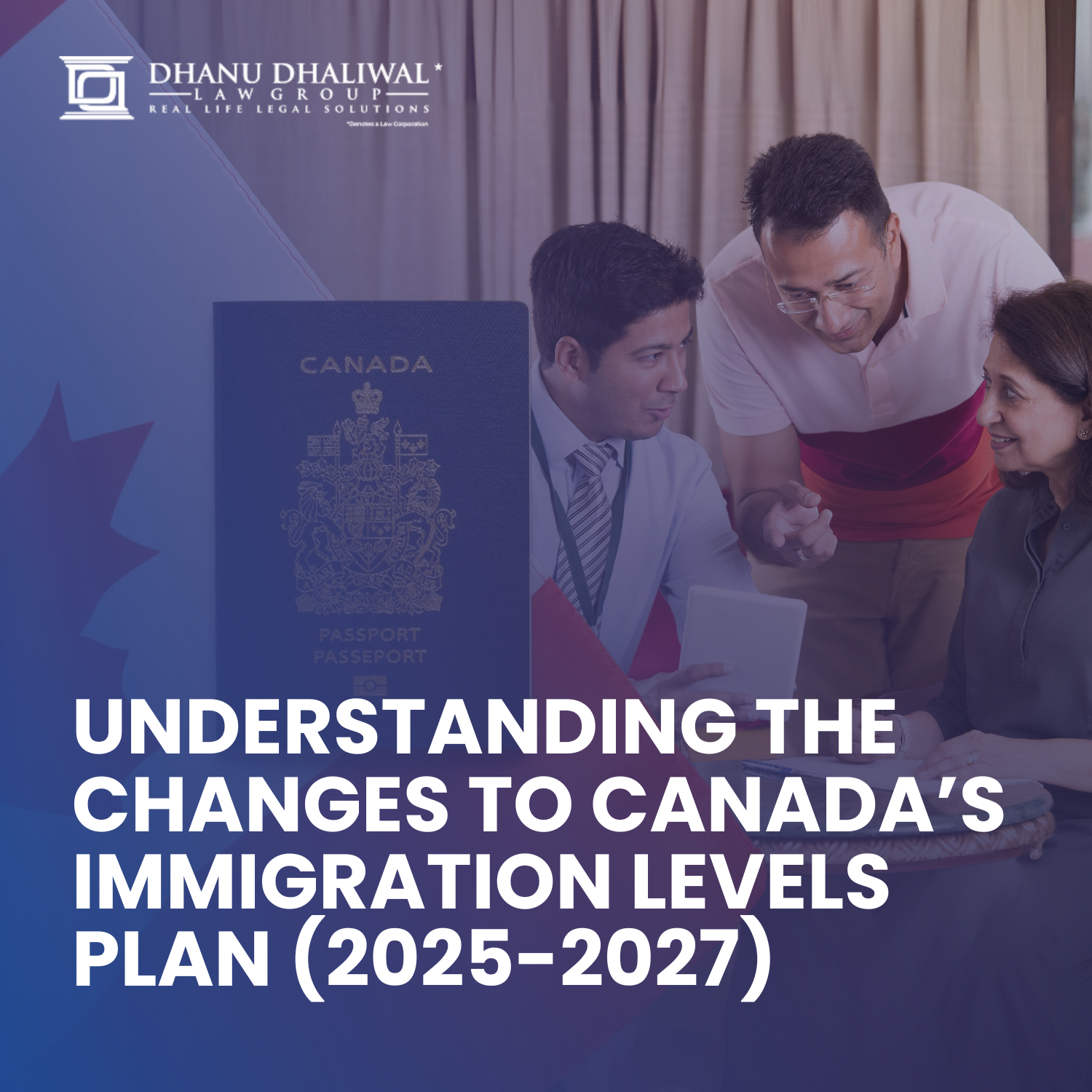If you’re looking to immigrate to the United States from Canada or anywhere else in the world, we’re sad to see you go! But the team here at Dhanu Dhaliwal Law Group is always willing to help you find better pastures and pursue your personal dreams.
Immigrating from Canada to the United States involves navigating a complex and often lengthy process. The U.S. has several immigration pathways, each with its own eligibility criteria and requirements. Here are some common ways to immigrate from Canada to the United States:
- Family Sponsorship:
- If you have close family members who are U.S. citizens or permanent residents, they may be able to sponsor you for immigration to the United States. Family members who can sponsor you include parents, children, siblings, and spouses.
- Employment-Based Visas:
- If you have a job offer from a U.S. employer, you may be eligible for an employment-based visa. Common employment-based visas include H-1B (for specialty workers), L-1 (intra-company transferees), and O-1 (for individuals with extraordinary ability).
- Investor Visas:
- If you plan to invest a significant amount of capital in a U.S. business, you may be eligible for an investor visa. The EB-5 Immigrant Investor Program, for example, requires a substantial investment that creates jobs in the U.S.
- Diversity Visa (DV) Lottery:
- The U.S. government conducts an annual DV Lottery program that provides a limited number of immigrant visas to individuals from countries with low rates of immigration to the United States, including Canada. Participants are selected through a random lottery drawing.
- Refugee or Asylum Status:
- If you are fleeing persecution or have a well-founded fear of persecution in your home country, you can seek refugee or asylum status in the United States. This typically involves applying for protection through the United Nations or a U.S. port of entry.
- Marriage to a U.S. Citizen:
- If you marry a U.S. citizen, you may be eligible for a marriage-based immigrant visa. After obtaining the immigrant visa, you can apply for a green card (permanent resident status).
- Diplomatic or Employee Visas:
- If you are a diplomat or an employee of an international organization, you may be eligible for a diplomatic visa (A visa) or a visa for international organization employees (G visa).
- Special Categories:
- Some special categories, such as the U visa for victims of certain crimes or the T visa for victims of human trafficking, provide a path to immigration for individuals in unique situations.
- Student Visas:
- If you wish to study in the United States, you can apply for a student visa, typically an F-1 visa. After completing your studies, you may be eligible for Optional Practical Training (OPT) or other work-related visas.
- Visa Waiver Program (VWP):
- Canadian citizens can visit the United States for tourism or business purposes for up to 180 days without obtaining a visa under the Visa Waiver Program. However, this does not grant permanent immigration status.
U.S. immigration laws and policies can change, and eligibility requirements may vary depending on the specific visa category. Additionally, some immigration processes may require extensive documentation, interviews, and background checks.
Consulting with an immigration attorney who specializes in U.S. immigration law is highly recommended to assess your eligibility and navigate the immigration process effectively. The attorney can help you understand the most suitable pathway for your situation and guide you through the application process.






